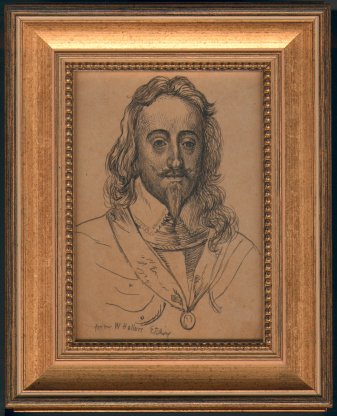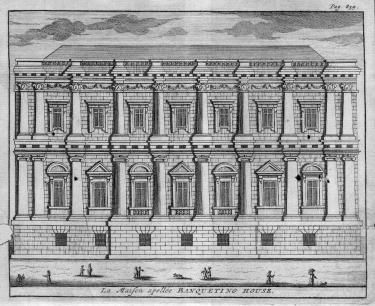
King Charles I by Charles West Cope RA (1811-1890). This preparatory sketch was used by Cope for his painting of King Charle's martyrdom, which hangs in The Palace of Westminster
Although S. Charles was soft-spoken and known to have suffered from a speech impediment, he left beyond a legacy in his speeches, sayings, prayers and writings.
During his trial and his martyrdom he spoke with the utmost of bravery. He spoke fluently, strongly and clearly. Many of these statements showed a great valiancy and it is through these very words that he has been immortalised to us.
On this page, we include a selection of statements made by and sayings associated with Charles, King and Martyr.
From a hanging in Cotgrave Church, Nottinghamshire
‘King Charles’s Rules’
Profane no Divine Ordinances
Touch no State Matters
Urge no Healths
Pick no Quarrels
Maintain no ill Opinions
Encourage no Vice
Repeat no Old Grievences
Reveal no Secrets
Make no Comparisons
Keep no Bad Company
Make no Long Meals
Lay no Wagers
Do Nothing in Anger
S.Charles’s Statements at His Trial
“Remember, I am your King, your lawful King, and what sins you bring upon your heads, and the judgement of God upon this land. Think well upon it, I say, think well upon it, before you go further from one sin to a greater … I have a trust committed to me by God, by old and lawful descent, I will not betray it, to answer a new unlawful authority; therefore resolve me that, and you shall hear more of me.
“I do stand more for the liberty of my people, than any here that come to be my pretended judges … I do not come here as submitting to the Court … Let me see a legal authority warranted by the Word of God, the Scriptures, or warranted by the constitutions of the Kingdom, and I will answer.
“It is not a slight thing you are about. I am sworn to keep the peace, by that duty I owe to God and my country; and I will do it to the last breath of my body. And therefore ye shall do well to satisfy, first, God, and then the country, by what authority you do it. If you do it by an usurped authority, you cannot answer it; there is a God in Heaven, that will call you, and all that give you power, to account.
“If it were only my own particular case, I would have satisfied myself with the protestation I made the last time I was here, against the legality of the Court, … it is the freedom and the liberty of the people of England; and do you pretend what you will, I stand more for their liberties. For if power without law, may make laws, may alter the fundamental laws of the Kingdom, I do not know what subject he is in England that can be sure of his life, or any thing that he calls his own.
“… It was the liberty, freedom, and laws of the subject that ever I took – defended myself with arms. I never took up arms against the people, but for the laws …
“For the charge, I value it not a rush. It is the liberty of the people of England that I stand for. For me to acknowledge a new Court that I never heard of before, I that am your King, that should be an example to all the people of England, for to uphold justice, to maintain the old laws, indeed I do not know how to do it.”
S.Charles’s final words just before his martyrdom on 30th January, 1649 at The Banqueting House
‘I die a Christian according to the profession of the Church of England.’
‘I have a good cause and I have a gracious God.’
‘I go from a corruptible to an incorruptible Crown.’
‘REMEMBER!’





